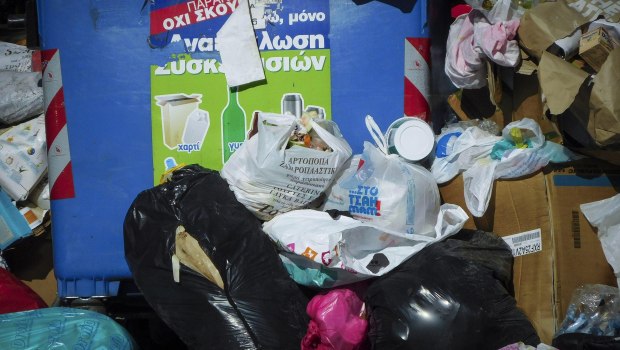Thessaloniki: Damages from sheep pox exceed €350 million in 14 months
Source: ProtoThema English
Losses from sheep pox in sheep and goats are estimated at more than €350 million over the past 14 months, with flocks decimated across the country and the survival of thousands of livestock farmers now directly at risk. This was stressed in comments to the Athens-Macedonian News Agency (AMNA) by Dimitris Moschos, president of the Hellenic Livestock Association (SEK), who underlined that Greece’s animal stock is shrinking dangerously.
According to Moschos, more than 300,000 animals have already been lost to sheep pox alone. Combined with losses from other livestock diseases, the future of the sector looks bleak. “Greek livestock farming is on high alert. Delays in making crucial decisions may lead to losses that can no longer be reversed. Farmers are calling for action now, before it’s too late,” he warned.
410,000 animals lost to livestock diseases
“Livestock farming is no longer at a crossroads. It has already begun to collapse, and the collapse is accelerating,” Moschos said, noting that the sector has been under repeated blows in recent years with no end in sight.
Beyond sheep pox, Greek livestock is also under pressure from other diseases:
- 80,000 animals were lost in summer 2024 to peste des petits ruminants (PPR).
- 30,000 animals died from bluetongue disease, which Moschos said is not officially recorded and has now become endemic.
For bluetongue in particular, he noted that “farmers vaccinate their flocks themselves to protect them. Nobody comes to help us.”
According to SEK data, Greece’s real livestock population is now estimated at 6 million animals, while the Ministry of Rural Development and Food places the figure at 7–8 million.
Where new outbreaks are found
Thrace and Thessaly remain the hardest-hit regions, but the situation is worsening in Western Greece, with Achaia now facing serious risk. At the same time, new outbreaks are being reported in Serres, Katerini, Imathia, and Thessaloniki, while scattered cases appear across the country. Authorities are working to contain the spread.
Vaccination debate divides the sector
For Greek farmers, the solution is clear: vaccinate the livestock. However, the Agriculture Ministry has refused, citing possible impacts on feta cheese exports, valued at €78 million. Moschos stressed that the EU has already made clear there is no public health risk as long as products are pasteurized. “The entire primary sector cannot be endangered just for feta exports. The EU has already clarified that pasteurized products can circulate freely,” he said.
Brussels intervention: “Consider vaccination seriously”
In July, the European Commission sent an official warning to the Greek government, noting that existing measures are not working and urging stricter controls and serious consideration of mass vaccination.
According to Moschos, the EU Animal Health and Welfare Commission already has 500,000 vaccine doses available, and on September 9 announced a tender for an additional 4 million doses to meet member states’ needs.
SEK’s message is clear: “Immediate political decisions, realistic measures, and courage are needed, otherwise Greek livestock farming may never recover from the shock of recent years.”
“Sheep pox does not infect humans”
Sheep pox poses no threat to public health, professor of Microbiology and Infectious Diseases at the Aristotle University of Thessaloniki, Spyros Kritas, told AMNA.
“The virus does not affect humans, nor does it remain in the milk or meat of sick animals,” he emphasized, explaining that human cell receptors are incompatible with the virus, so infection is impossible. Sheep pox is a highly contagious but strictly animal disease, with severe economic consequences for livestock farming, but none for public health.
Ask me anything
Explore related questions
The original article: belongs to ProtoThema English .



